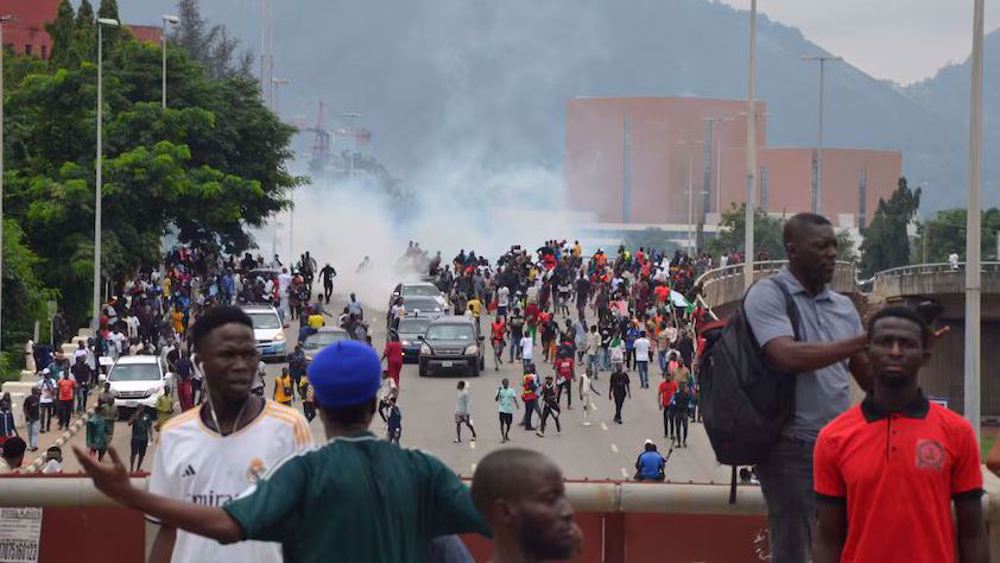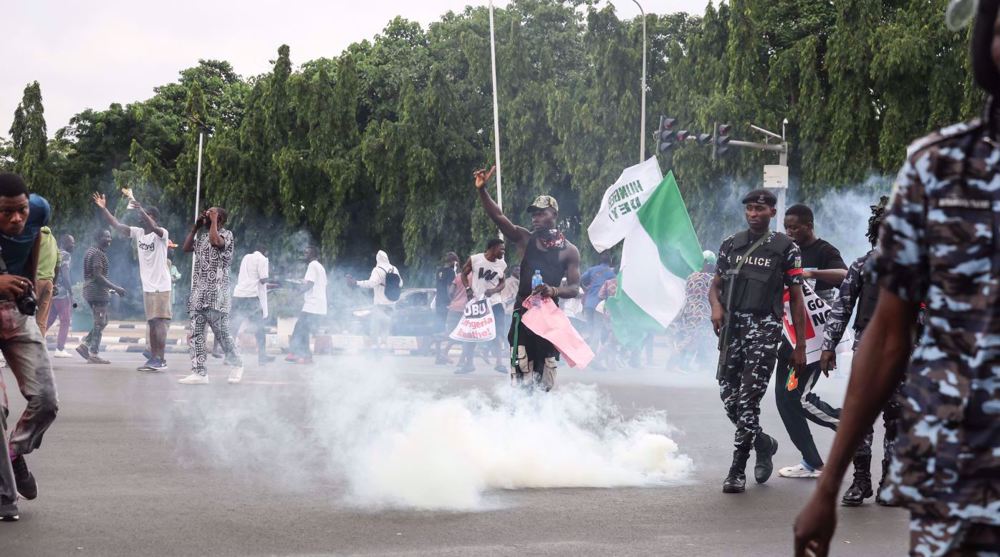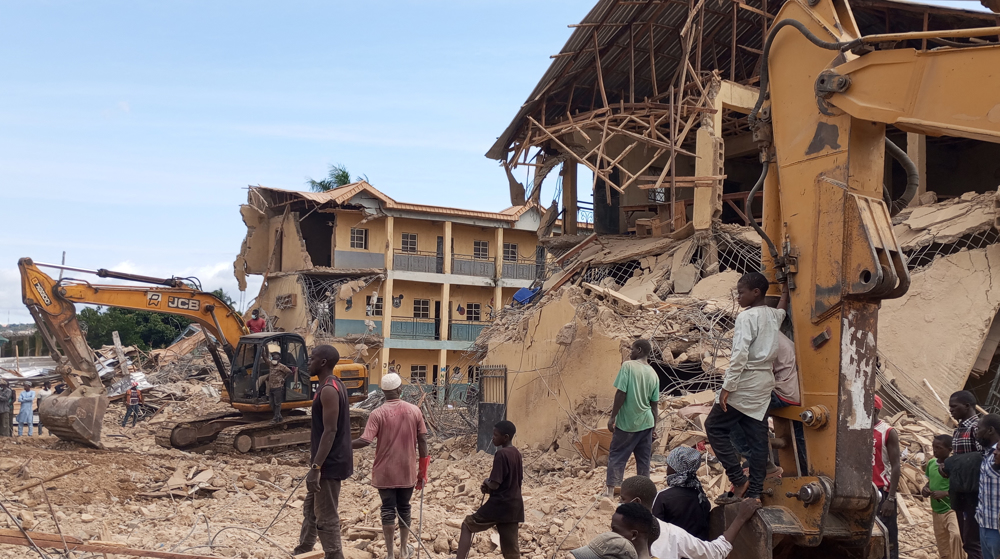Suspected Boko Haram bomb attacks kill dozens in Eastern Nigeria
At least 24 people have lost their lives in suspected Boko Haram bomb attacks in and around a mosque in Nigeria’s eastern province of Adamawa, police and officials say.
According to provincial police spokesman, Othman Abubakar, two terrorists, suspected to be members of the Boko Haram Takfiri terrorist outfit, detonated their explosive belts at a mosque and at a crowded market in Mubi, a town some 200 kilometers from the provincial capital of Yola on Tuesday.
He further said that both the attacks were carried out almost simultaneously at about 01:20 .p.m. local time (1220 GMT), adding, “For now (the death toll) is 24.”
However, other sources gave much higher figures. Rescue worker, Sani Kakale, said at least “42 dead bodies” and 68 injured people had been taken to a hospital in his presence, whereas an unnamed source at Mubi General Hospital told AFP that “so far, 37 bodies” and dozens of wounded people, many of them critically, were received in the hospital.
Abdullahi Labaran, an eyewitness, said the first terrorist had managed to mingle with worshippers, who had convened for prayers at the mosque at the edge of the town’s market, and detonated his explosives “five minutes before the prayer started.”
After the first blast, panicked survivors rushed out towards the butchery section of the market, where the second bomber blew himself up among the worshipers, traders and shopkeepers, Labaran added.
No group has so far claimed responsibility for the deadly attacks, but they bear the hallmark of the Boko Haram terror group, as in the past it has employed extremists, mostly females, on multiple occasions to conduct bombing attacks against people or army troops.
Back in late 2014, Mubi was briefly overrun by the Takfiri terrorists and since then it has been repeatedly targeted in terror attacks blamed on Boko Haram, which pledged allegiance to Daesh Takfiri terrorist group in 2015.
In November 2017, at least 50 people lost their lives when a Boko Haram bomber detonated his explosives at a mosque during early morning prayers in the Unguwar Shuwa area of Mubi.
In June 2014, at least 40 football supporters, including women and children, lost their lives in a bomb attack following a match in the Kabang area of Mubi.
In October 2012, a suspected Boko Haram attack on a student housing in the town killed at least 40 people, mostly students.
The Boko Haram terror campaign in Nigeria is in its tenth year and has so far killed more than 20,000 and forced the displacement of over two million others. The group also launches terror attacks in neighboring countries, including Cameroon and Chad.
Boko Haram, whose name roughly translates as “Western education is forbidden,” has used kidnapping as a weapon of war, seizing thousands of women and young girls as well as men and young boys.
Adamawa, Borno and Yobe states in northeast Nigeria are the three states most affected by the Boko Haram militancy.
The United Nations warned late last year that areas affected by Boko Haram militancy faced humanitarian crisis.
Yemen faces ‘highest burden’ of cholera globally: WHO
Settlement expansion proves Israel cannot be trusted for any peace deal: Hamas
VIDEO | Press TV's news headlines
Trump 2.0 and its possible implications on Ukraine war, NATO and Europe
Israeli commander exposed troops to resistance fire to steal plasma screens
Iran lifts ban on WhatsApp, Google Play
VIDEO | Palestinian childhood under threat
Yemeni forces strike Israeli military site with hypersonic missile















 This makes it easy to access the Press TV website
This makes it easy to access the Press TV website